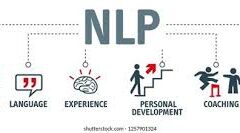Amazon Q Business: Revolutionizing Enterprise Productivity with Generative AI and Plugins
Amazon Q Business is a generative AI-powered assistant that empowers employees by solving problems, generating content, and offering actionable insights from across enterprise data sources. In addition to its robust search capabilities across indexed third-party services, Amazon Q Business enables real-time access to dynamic data like stock prices, vacation balances, and location tracking through its plugins. These plugins also allow employees to perform direct actions—such as prioritizing service tickets—within enterprise applications, all through a single interface. This eliminates the need to toggle between systems, saving valuable time and increasing productivity.
This insight delves into how Amazon Q Business plugins seamlessly integrate with enterprise applications through built-in and custom configurations. We’ll explore:
- Built-in plugins like Salesforce integration.
- Custom plugins tailored to unique business needs.
- Real-world use cases demonstrating streamlined workflows across enterprise systems.
Simplifying Enterprise Tasks with Plugins
Amazon Q Business enables users to access non-indexed data—such as calendar availability, stock prices, or PTO balances—and execute actions like booking a meeting or submitting PTO using services like Jira, ServiceNow, Salesforce, Fidelity, Vanguard, ADP, Workday, and Google Calendar. This unified approach streamlines workflows and minimizes reliance on multiple apps for task completion.
Solution Overview
Amazon Q Business connects to over 50 enterprise applications using connectors and plugins:
- Connectors: Pre-index enterprise content for end-user access within Amazon Q Business.
- Plugins: Fetch real-time information and enable actions within enterprise applications.
Plugins are categorized into two types:
- Built-in Plugins
Preconfigured to support specific applications and actions, including Salesforce, Jira, ServiceNow, Microsoft Teams, and Google Calendar. - Custom Plugins
Designed by administrators for bespoke enterprise needs by defining API behavior and operations.
Built-in Plugins
Amazon Q Business supports more than 50 actions across applications:
| Category | Application | Sample Actions |
|---|---|---|
| Ticketing | ServiceNow | Create, update, delete tickets |
| Zendesk Suite | Search, create, update tickets | |
| Project Management | Jira Cloud | Read, create, update, delete issues |
| Smartsheet | Search and manage sheets and reports | |
| CRM | Salesforce | Manage accounts, opportunities, and cases |
| Communication | Microsoft Teams | Send private or channel messages |
| Productivity | Google Calendar | Find events, list calendars |
Salesforce Plugin Example
The Salesforce plugin allows users to:
- Manage cases (create, update, delete).
- Retrieve account lists and opportunities.
- Fetch contact information.
Configuration Steps:
- Access the Amazon Q Business console, select Applications, and choose Add Plugin under the Plugins section.
- Select Salesforce as the plugin.
- Provide configuration details, including the Salesforce domain URL, OAuth 2.0 credentials, and necessary AWS permissions.
- Add the plugin to enable real-time Salesforce actions.
Custom Plugins
For scenarios not covered by built-in plugins, custom plugins enable seamless integration with proprietary systems. For example:
HR Time Off Plugin Example
This plugin allows employees to:
- Check PTO balances.
- Submit time-off requests.
Setup Steps:
- Define an API schema (via Amazon S3 or inline editor) to configure API endpoints for actions like querying balances or submitting requests.
- Authenticate via AWS Secrets Manager to securely connect with third-party systems.
- Deploy the plugin, allowing employees to manage time-off requests through natural language commands.
End-to-End Use Cases
1. Salesforce Integration
Sam, a Customer Success Manager, retrieves high-value opportunities using the Salesforce plugin. She creates a new case directly from the Amazon Q interface, enhancing efficiency by reducing application switching.
2. ServiceNow Ticket Management
Sam uses Amazon Q Business to resolve a laptop email sync issue. After referencing indexed IT documentation, she creates a ServiceNow ticket and escalates it directly through the plugin interface.
3. HR System Integration
Sam checks her PTO balance and submits a vacation request using the HR Time Off custom plugin, ensuring seamless task completion without switching to another app.
Impact on Workflow Efficiency
Amazon Q Business plugins simplify workflows by:
- Unified Interface: Providing a single conversational interface for enterprise tasks.
- Knowledge Integration: Combining indexed enterprise knowledge with actionable insights.
- Workflow Enhancement: Enabling natural language interactions to execute complex tasks.
Conclusion
Amazon Q Business plugins represent a transformative step in automating enterprise workflows and enhancing employee productivity. From preconfigured integrations to custom-built solutions, these plugins provide unparalleled flexibility to adapt to diverse business needs.
How can Amazon Q Business transform workflows in your organization? Whether through built-in integrations or custom solutions, explore the power of Amazon Q Business plugins to unlock new levels of efficiency. Share your feedback and use cases to inspire innovation across enterprises!












